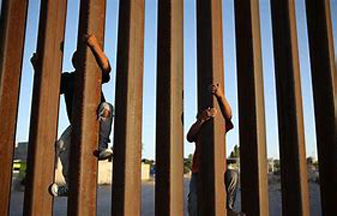
TUSCAN, AZ (TIP): A growing and deeply troubling trend is unfolding along the United States’ southern and northern borders: Indian families, particularly from Gujarat, are sending their minor children alone to U.S. border crossings, often with nothing more than a handwritten chit bearing contact details. The hope, according to officials and media reports, is that once inside the system, these children will pave the way for their parents to obtain legal status in the U.S.
This alarming phenomenon has seen a sharp increase in recent years. According to a media report, between 2020 and 2023, the number of unaccompanied Indian children apprehended at U.S. borders rose by a staggering 233 percent. In the fiscal year 2023 alone, U.S. border authorities took 730 Indian minors into custody, most between the ages of 10 and 14. Some were as young as four. Nearly 1,700 such minors were intercepted between 2022 and November 2024.
These children often arrive at the U.S.-Mexico border—popularly known as the “Donkey route”—though some are also encountered along the U.S.-Canada border. In many cases, they are left intentionally by smugglers or other migrants traveling with them, while the child carries only a piece of paper with a relative’s phone number.
Human smuggling networks in Gujarat, particularly in Mehsana and Gandhinagar districts, are believed to be orchestrating many of these journeys. Families who are already in the U.S. illegally sometimes pay these smugglers to bring their children across, betting on the assumption that the U.S. government will place the minors in their custody. Once reunited, these parents may then attempt to adjust their own immigration status.
In some of the more deceptive cases, unrelated children are paired with adults pretending to be their guardians. Once the border is crossed, the children are abandoned, creating a false narrative of a family unit in transit.
The mental and physical toll on these children is immense. After being apprehended, they are placed in detention facilities with limited access to healthcare and legal assistance. According to another report, many suffer long-term psychological effects from the trauma of separation and the perilous journey.
Legal experts and immigration advocates warn that this growing trend reveals the desperation of Indian families facing limited options for lawful migration. They are calling for stronger international cooperation to dismantle smuggling networks and for reforms that create safer, legal avenues for immigration.
When a child who is not accompanied by a parent or legal guardian is apprehended by immigration authorities, the child is transferred to the care and custody of the Office of Refugee Resettlement (ORR). Federal law requires that ORR feed, shelter, and provide medical care for unaccompanied alien children until it is able to release them to safe settings with sponsors (usually family members), while they await immigration proceedings. These sponsors live in many states.
Sponsors are adults who are suitable to provide for the child’s physical and mental well-being and have not engaged in any activity that would indicate a potential risk to the child. All sponsors must pass a background check. The sponsor must agree to ensure the child’s presence at all future immigration proceedings. They also must agree to ensure the minor reports to ICE for removal from the United States if an immigration judge issues a removal order or voluntary departure order.
(Source: PTI)





Be the first to comment